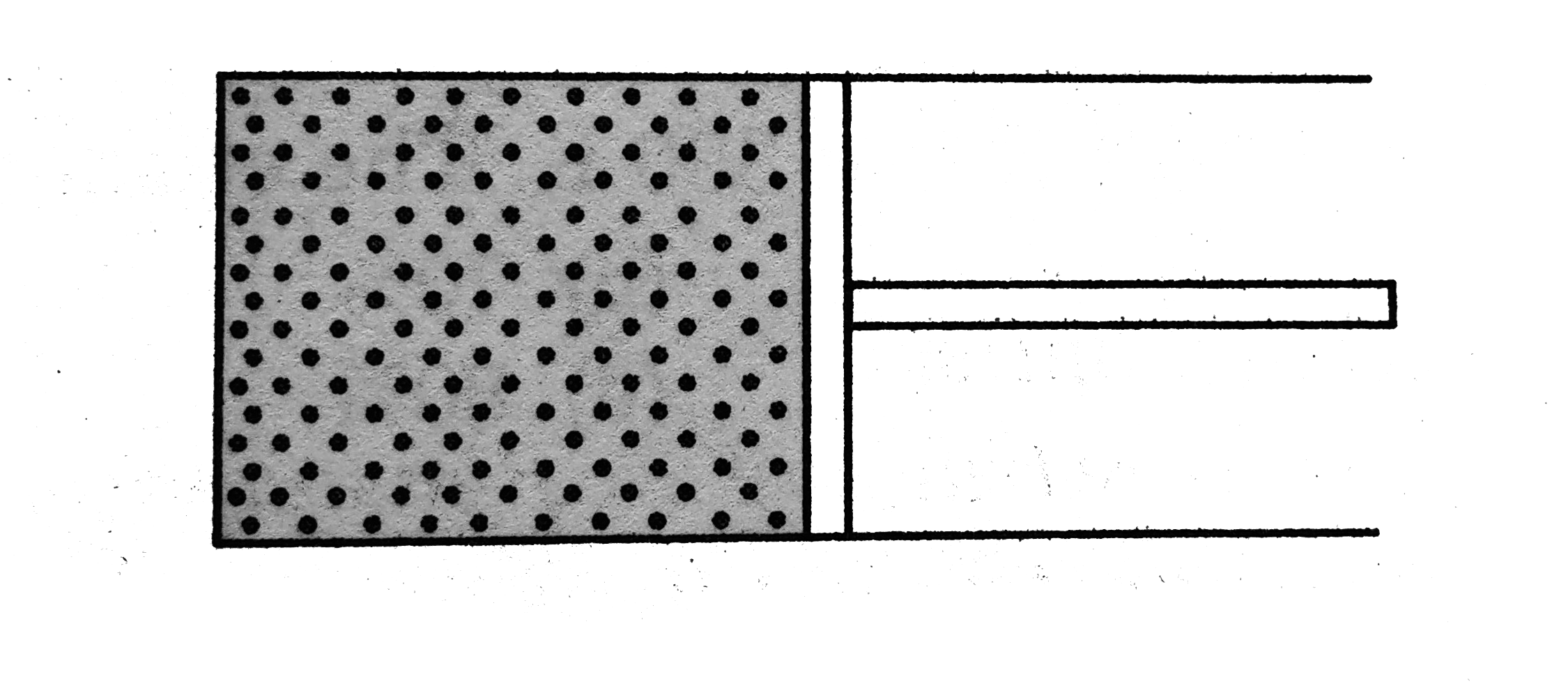Two moles of a gas expand reversibly and isothermally at temperature of 300K. Initial volume of the gas is 1 L while the final pressure is 4.926 atm . The work done by gas is
−11488.28J
−15036.28J
−22488.28J
−33488.28J
The correct Answer is:A
To solve the problem of calculating the work done by the gas during its isothermal and reversible expansion, we can follow these steps:
Step 1: Identify the Given Data
- Number of moles (n) = 2 moles
- Temperature (T) = 300 K
- Initial volume (V_i) = 1 L
- Final pressure (P_f) = 4.926 atm
Step 2: Calculate Initial Pressure (P_i)
Using the ideal gas equation PV=nRT, we can find the initial pressure Pi.
Pi=nRTVi
Where:
- R=0.0821L atm K−1mol−1 (ideal gas constant)
Substituting the known values:
Pi=2mol×0.0821L atm K−1mol−1×300K1L
Calculating this gives:
Pi=49.26atm1=49.26atm
Step 3: Calculate Work Done (W)
The work done by the gas during an isothermal expansion can be calculated using the formula:
W=−nRTln(VfVi)
However, we need to express VfVi in terms of pressures. From the ideal gas law, we know:
PiVi=PfVf⟹VfVi=PiPf
Substituting the values:
VfVi=49.26atm4.926atm≈10
Step 4: Substitute Values into the Work Done Formula
Now substituting back into the work done formula:
W=−nRTln(PiPf)
Calculating ln(10):
W=−2×0.0821L atm K−1mol−1×300K×ln(10)
Using ln(10)≈2.303:
W=−2×0.0821×300×2.303
Calculating this gives:
W≈−2×0.0821×300×2.303≈−11,488.28J
Final Answer
The work done by the gas is approximately:
W≈−11,488.28J
- Number of moles (n) = 2 moles
- Temperature (T) = 300 K
- Initial volume (V_i) = 1 L
- Final pressure (P_f) = 4.926 atm
Using the ideal gas equation PV=nRT, we can find the initial pressure Pi.
- R=0.0821L atm K−1mol−1 (ideal gas constant)
The work done by the gas during an isothermal expansion can be calculated using the formula:
Now substituting back into the work done formula:
The work done by the gas is approximately:
Similar Questions
2mol of an idela gas expand reversibly and isothermally at 25∘C from 2L to 10L. Calculate the work done by the gas in calories.
View SolutionInitial volume of a gas is 1L at temperature 100K. What is the volume of a gas at 300K.
View SolutionTwo moles of an ideal gas expanded isothermally and reversibly from 1L to 10L at 300K. What is the enthalpy change?
View SolutionCalculate entropy change when 10mol of an ideal gas expands reversible and isothermally from an initial volume of 10L to 100L at 300K.
View SolutionOne mole of an ideal monoatomic gas expands isothermally against constant external pressure of 1 atm from initial volume of 1l to a state where its final pressure becomes equal to external pressure. If initial temperature of gas is 300K then total entropy change of system in the above process is: [R =0.082L atm mol−1K−1=8.3Jmol−1K−1]
View SolutionAn ideal gas at 300K is expanded isothermally to double its volume,then pressure of the gas will be
View Solutionn moles of a gas are filled in a container at temperature T. If the gas is slowly and isothermally compressed to half its initial volume, the work done by the atmosphere on the gas is

View SolutionOne mole of an ideal monoatomic gas expands isothermally against constant external pressure of 1atm from intial volume of 1L to a state where its final pressure becomes equal to external pressure. If initial temperature of gas in 300K then total entropy change of system in the above process is:
[R=0.0082Latmmol−1K−1=8.3Jmol−1K−1]
View SolutionTwo moles of an ideal monoatomic gas at 5 bar and 300 K are expanded irreversibly up to a final pressure of 1 bar and 240 K against an external pressure of 0.5 bar. The work done by the gas is −xR. The value of x' is
(Here 'R' is gas constant)
View SolutionTwo moles of helium gas expanded isothermally and irreversibly at 27∘C from volume 1dm3 to 1m3 at constant pressure of 100 k Pa. Calculate the work done.
View Solution
